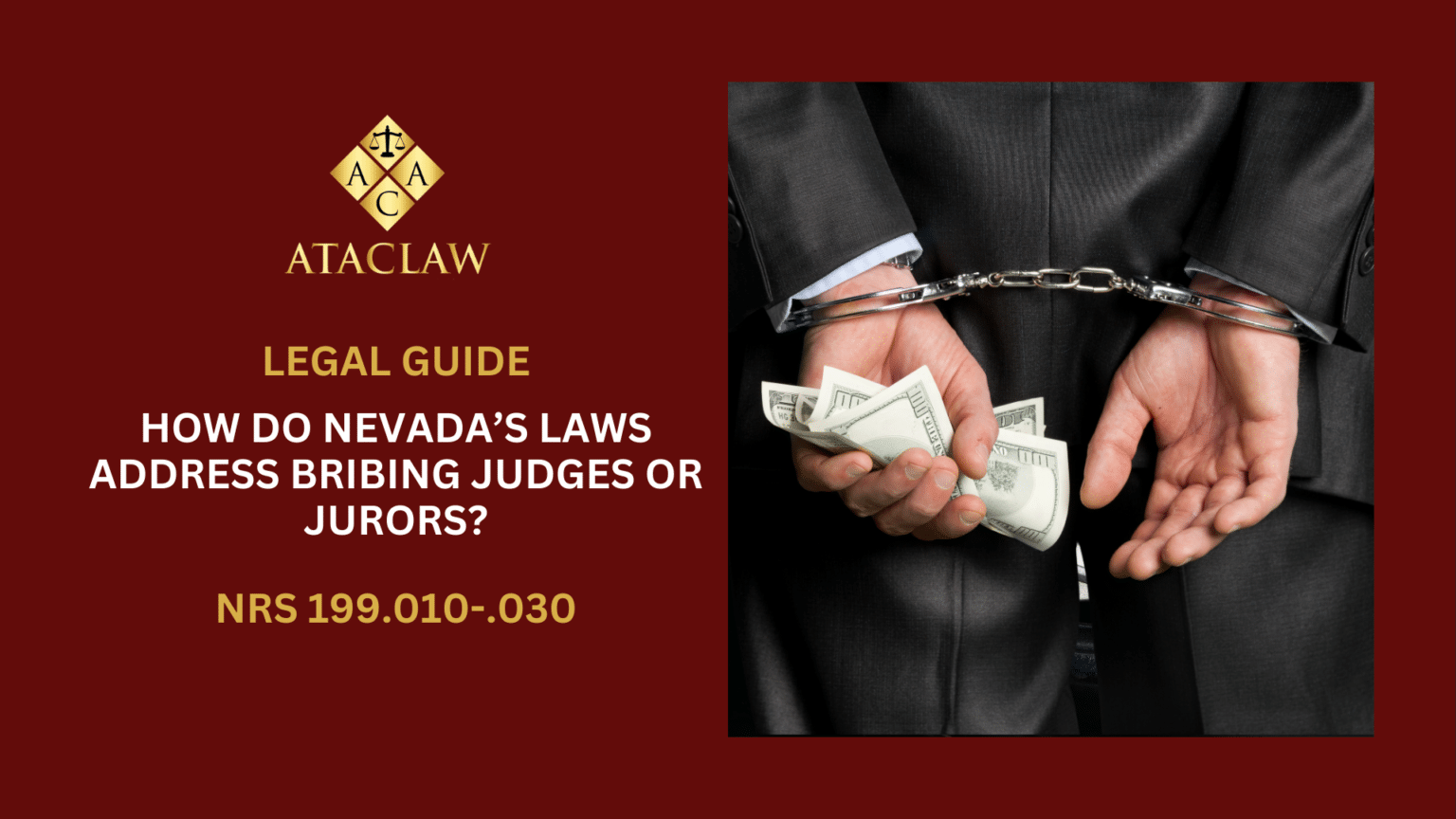It is widely known that it’s illegal for judges or jurors to solicit or accept bribes in exchange for a verdict. Similarly, offering or agreeing to pay a bribe to a judge or juror is also a criminal offense. These actions constitute judicial bribery, a serious category C felony that can result in imprisonment and hefty fines. However, in certain cases, it may be possible to have the charge dismissed by demonstrating that there was no intent to influence the decision-making of judicial officers. Join us as we explore Nevada’s laws on bribing judges or jurors in detail.
Are You Familiar with Nevada’s Judicial Bribery Laws?
In Nevada, it is unlawful to attempt to influence a judge, juror, or any other judicial officer’s decision-making process in exchange for money, favors, or anything else of value. Even if the bribe is not accepted, the mere act of offering constitutes an offense under Nevada law. Conversely, it is also illegal for judges or jurors to solicit or accept bribes to influence their rulings, regardless of whether the promised compensation is received or if they fail to deliver the agreed-upon verdict. Simply requesting a favor in exchange for a court ruling violates Nevada’s judicial bribery laws.
What are the consequences?
In Nevada, judicial or juror bribery constitutes a category C felony, carrying the following penalties:
1. A prison sentence ranging from one to five years
2. Fines of up to $10,000
It is important to note that these penalties apply regardless of whether you are a judge or juror accepting a bribe, or an ordinary citizen offering a bribe to a judge or juror. In the eyes of the law, anyone convicted of judicial bribery is subject to the same felony punishments, and judicial officers are not granted special treatment or leniency.
What are the most effective defenses?
Drawing from our extensive experience in defending against judicial bribery charges, we’ve identified three robust defense strategies that have proven successful in either reducing or dismissing the case:
Lack of intent to exchange favors for a verdict: If you engaged in a lawful business transaction with another individual, the mere fact that one party involved is a judge or juror does not automatically imply guilt of judicial bribery. Without clear evidence demonstrating your intention to carry out a bribe, no criminal offense has been committed.
Entrapment: In cases where law enforcement suspects potential involvement in judicial bribery, they may employ undercover operations to elicit agreement to a bribe, subsequently leading to arrest. By demonstrating that you were not predisposed to bribery and only succumbed to pressure from law enforcement, the charges can be dismissed.
Coercion: If you were coerced into either making or accepting a bribe, presenting evidence of coercion—such as threats of harm—can lead to dismissal of the case, as your actions were solely driven by fear and not by intent to commit bribery.
Can my criminal record be sealed?
Yes, it’s possible to seal a judicial bribery conviction from your criminal record in Nevada. Typically, this can be done five years after the conclusion of your case. However, if the criminal charge against you is dismissed, you have the option to request the court to seal your record immediately.
For further legal assistance and to discuss your case with an expert, don’t hesitate to contact ATAC LAW.




